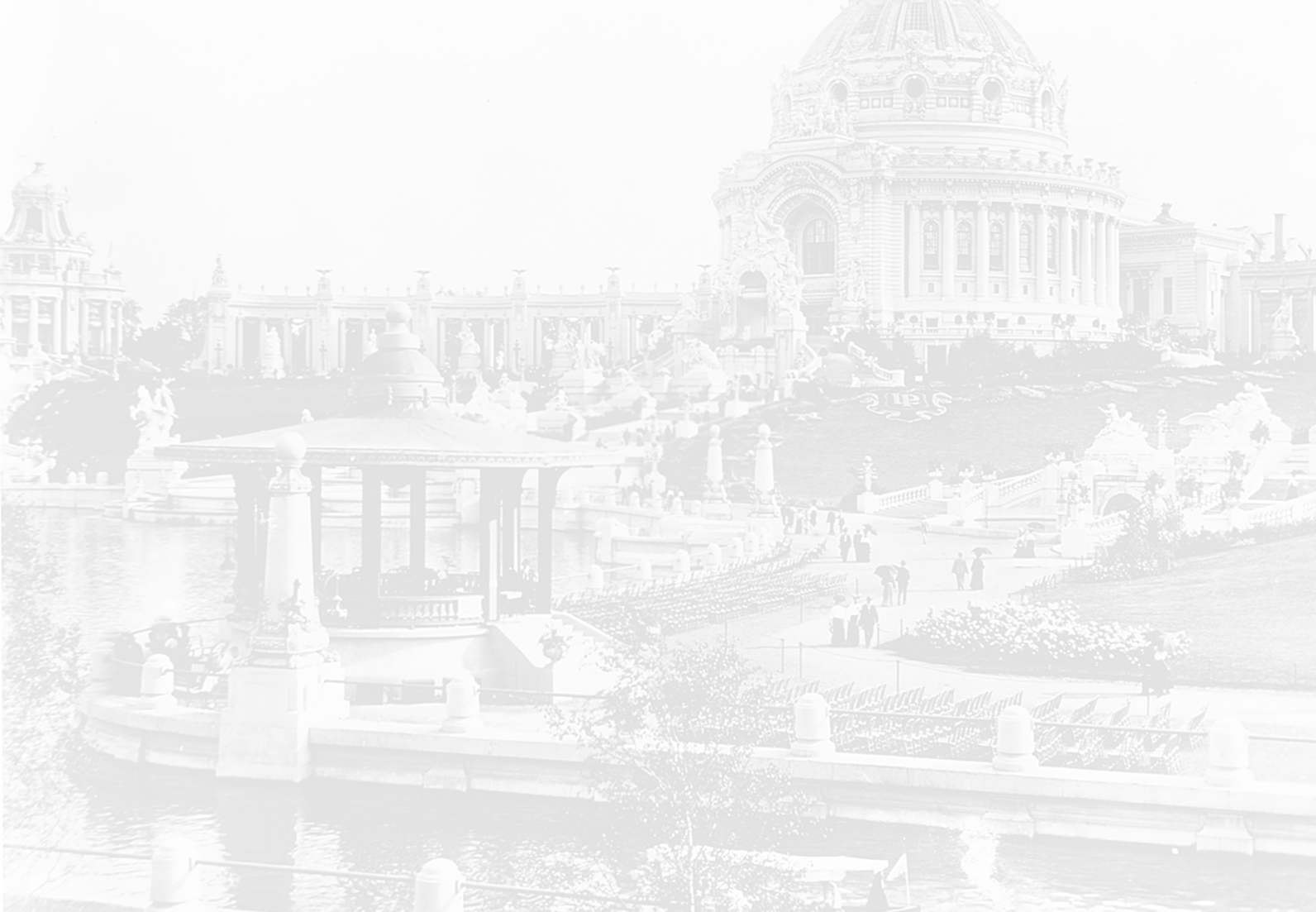Even though most people knew about the 1904 World's Fair, the Louisiana Purchase Exposition Company, various venders, and service companies, needed to advertise and titillate the potential Fairgoer and buyer on what the Exposition offered. During the 1904, the LPEC and companies within the Fair, advertised the Exposition, their wares, transportation and such, in: magazines, newspapers, pamphlets, and brochures. Remember, there was no television or radio at that time. This page on the At The Fair web site will concentrate on Ads. Please feel free to send me an ad to `add' (LOL) to this page.
The 'Peace and Plenty' white ad to the lower right, is from a newspaper, obviously promoting the Inside Inn, the only lodgings for Fairgoers within the Exposition grounds.
The piece on the right is a poster for the same Inn. It measures 20" x 29."
Though many advertisements included artwork, this was plain and to the point- 2,257 rooms, with and without baths and their dining room seated 2,500. Rates varied depending on the plan the guest choose.
Another form of advertising was the Fair postcard. Here. enthralled visitors would unknowingly advertise the grandeur and spectacle of the Exposition. Another side-benefit of the postcard was that the purchaser also paid for the postage. The huge array of 1904 WF postcards are now a moderate and affordable collectable for Fair enthusiasts.
Many ads, contained photos that showcased or previewed a particular attraction at the Louisiana Exposition. This Fair Japan attraction (ad- lower right), was very popular (profits tripled their building costs (not including the highly profitable bazaar too). Of course in a still at the time male-dominated world, the words in the ad to the right- `and most handsomest geisha girls,' couldn't hurt.
This ad for the Victor Talking Machine (much lower right), , strangely marries the carnival sideshow angle of a `have to be seen,' item with the aesthetic nature of a classical 3D relief.
In 1904, Victor introduced the deluxe gold-trimmed Victor VI model, which sold for 100 dollars.
Founded by Eldridge Johnson in 1901, the Victor Talking Machine Company at the time of the Fair was in a fierce battle with its many competitors. The famous but awkward amplification horn would soon be replaced in 1906 by a more fashionable box (internal horn components), patented by Johnson under the name Victrola. In 1929, RCA bought the Victor Talking Machine Company, calling itself- RCA Victor. The depression almost ended the company, but in the 1930's sales boomed.
Some companies such as Truscott Boat Company used their high profile at the St. Louis World's Fair as advertising for their other interests and locations.
Leslie's Weekly was an American illustrated literary and news magazine founded in 1852. It was published weekly, on Tuesdays.
Upon founder, publisher and illustrator Frank Leslie's death in 1880, his widow, Miriam Florence Leslie continued the magazine, until 1922 (by then is wasn't a part of the Leslie family).
The Leslie's Weekly often took a strongly patriotic stance and frequently featured cover pictures of soldiers and heroic battle stories.
Though not precisely an ad (right), this August 18, 1904 issue and articles within, obviously advertised the grandiose of the 1904 World's Fair.
